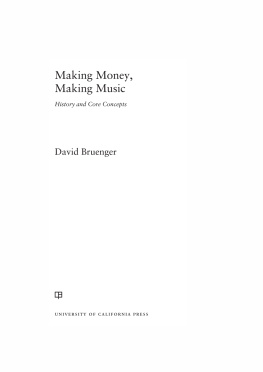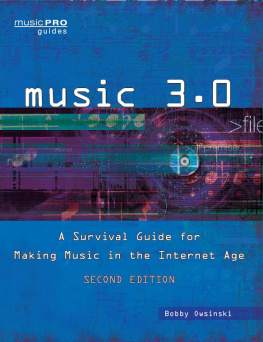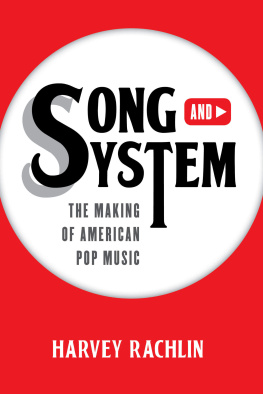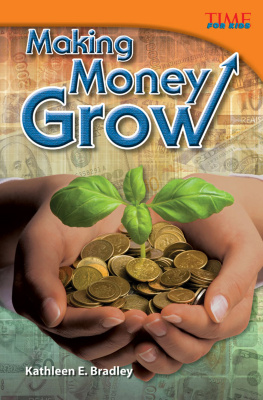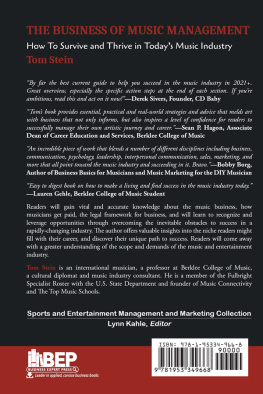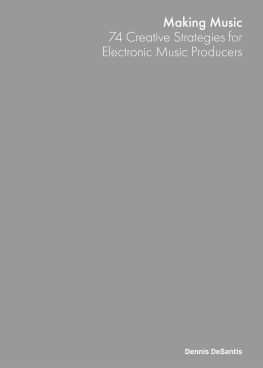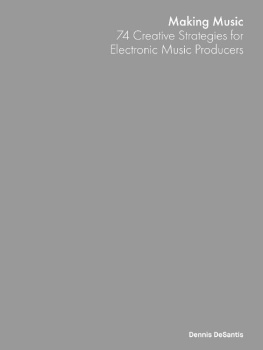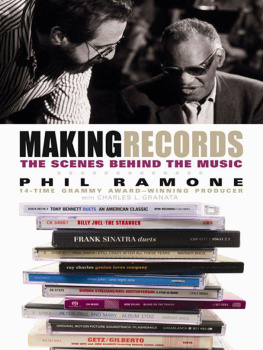Introduction
Over the course of the twentieth century and (so far) in the twenty-first, musical experience and the means to monetize it have been fundamentally transformedand more than once. At every stage, the system supporting the production, distribution, and consumption of musicwhether based on records, radio, print publishing, and live shows, or downloads, streams, licensing, and live showsinvolves many individuals, organizations, relationships, and processes. And, as new technologies, social behaviors, and economic conditions emerge, these systemic frameworks are inevitably affected, either adapting to change or collapsing into irrelevance, insolvency, or both.
This music production and distribution framework and its ongoing evolution exemplify a complex system. It is complex not only in the sense of complicated but also in the more technical meanings of the term. As broadly defined across multiple disciplines, a complex system is a network comprising many discrete components or agents that interact with one another at a local level and, though lacking any centralized control, produce coordinated results that go beyond the sum of their individual actions. While the workings of such a system tend to follow consistent, observable patterns, they are also organically adaptive to emergent changes in their environment.
Such complex adaptive systems have been observed in nature, computer networks, and in social, legal, and economic contexts. So it is logical to consider that the business of creating and distributing music
Complexity theory offers two practical considerations for the study of the music business. First, a complex systems model can improve our understanding of music commerce, its agents, and processes. Second, applying that model to education illuminates particular challenges for aspiring music professionals and their teachers.
One consequence of teaching and studying such a complex subject as the music industry in a college or university setting is that content must be streamlined in order to fit the constraints of class time and comprehensibility. Often the streamlining process leads to a focus on how it works today in the music businesshowever today is defined. Because the music business is volatile, subject to changing technologies, legal frameworks, social behaviors, and economic conditionsnot to mention the transient tastes of the listening publicit is challenging to keep studies of current practice current.
This dilemma parallels challenges in the music marketplace, where participants must be able to respond to changing conditions. Consequently, the study of the music business should encourage development of an adaptive capacity if students are going to effectively participate and produce in the music marketplace.
To develop adaptive capacity, students need more than a detailed understanding of current practice. Of course, it is important to understand best practices. But in a complex market system, success depends also upon awareness of context, the capacity to see trends and recognize patterns, as well as the analytical skill to recognize pattern disruptions and the practiced ability to adapt existing, or create new, solutions.
This book is dedicated to the development of adaptive expertise in the study of music enterprise. It incorporates both how it works and how it has worked content, as well as opportunities to develop comparative analysis and pattern recognition skills. It explores not only how but also why a system or tactic works when it does and why it fails to work when it doesnt. The foundational method is to use contemporary and historical examples and comparisons to extract principles of operation that are consistent over time and adaptable across stylistic, social, technological, and economic contexts.
As the term is used here, a core principle is derived from a particular situation but is transferable to (potentially) every situation involving music, people, and money. A step beyond the core principle is the operative dynamic. Operative dynamics are not only descriptive. They are process models that show how something works. In its most fundamental form, an operative dynamic embodies a scalable, adaptive relationship or process, not just a concept or structure. But, like core principles, operative dynamics are transferable and can be used to explain piracy in 1899 and 1999 or the enterprises of Thomas Edison and Daniel Ek with equal validity.
In studying, applying, and learning how to develop their own core principles and dynamic models, students develop the capacity to analyze what is happening, recognize whether or not it has happened before, and what answersfamiliar, adapted from another context, or entirely newmight work best in the emergent situation.
Through this learning process, students can develop a different kind of expertise in music businessan expertise that can be adapted to a variety of circumstances, used to solve out of the box problems, and create new processes and products. The person with those tools will not only be efficient with the complex yet routine processes of an established music industry, but also respond creatively and effectively when the unexpected arises.
In the first chapter, we begin with the most fundamental core principlethat all forms of music enterprise are based on a relationship between artist and audience; and an operative dynamicthat the musical experience is a transaction that is the basis for all meaning and value created through music.
CHAPTER 1
Musical Experience as Transaction
The music of the soul is also the music of salesmanship.
Herbert Marcuse
This is a book about making money, making music, and using the one to accomplish the other. It is not concerned with formal definitions of music or with practical music making. Nor will it provide specific guidance on how to promote your band, start a record label, or fill out a copyright registration form. This is an exploration of value in its many formsartistic, social, cultural, and economicand the capacity of music to create it. It is an examination of the human experience of music, why people place a value on that experience, andperhaps most criticallyhow that value is measured.

